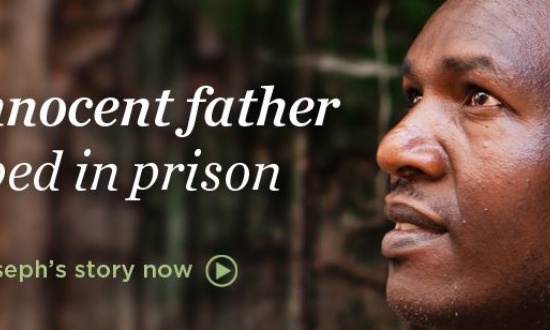 When William Wilberforce and his compatriots succeeded in bringing an end to 400 years of the trans-Atlantic slave trade, it may have seemed that the monster of slavery was defeated. These heroes had the courage to fight and win the battle against slavery in their era—but the crime endures in new forms. Today, there are 27 million children, women, and men entrapped in this brutal system. As Christians called to “seek justice [and] rescue the oppressed” (Isaiah 1:17), we must respond to the evil of modern-day slavery. Children like Kumar desperately need us to.
When William Wilberforce and his compatriots succeeded in bringing an end to 400 years of the trans-Atlantic slave trade, it may have seemed that the monster of slavery was defeated. These heroes had the courage to fight and win the battle against slavery in their era—but the crime endures in new forms. Today, there are 27 million children, women, and men entrapped in this brutal system. As Christians called to “seek justice [and] rescue the oppressed” (Isaiah 1:17), we must respond to the evil of modern-day slavery. Children like Kumar desperately need us to.
When he was only five years old, Kumar suffered great loss: his father died suddenly and his mother abandoned him. Orphaned and alone, Kumar went to live with his uncle. Two years after his father’s death, Kumar’s tragedies were compounded when a corrupt brick kiln owner conscripted the little boy into slavery at his kiln.
The brick kiln was a massive operation that churned out hundreds of hard clay bricks every day, powered by slaves who gathered water, sifted sand, molded bricks, and hauled them in and out of the sun for the owner’s profit. All day, seven days a week, Kumar carried heavy clay bricks back and forth in the kiln as they dried. He woke early each morning to begin laboring at 6:30 a.m. and continued until the evening hours, his hands raw and his body exhausted.
Though he was only a child, Kumar knew that his situation was wrong. “I wanted to study. I wanted my parents. I wanted to play. At times I would think of all those things,” he remembers.
But Kumar was not forgotten. International Justice Mission, a Washington, DC-based human rights organization that works in 13 countries in the developing world to bring the protections of the law to the poor, learned of the kiln where he was held.
Around the world, International Justice Mission’s teams of investigators, lawyers, and social workers respond to God’s call to seek justice for the oppressed by tangibly bringing the protection of the law to the poor. IJM staff work with local authorities to investigate cases of violent oppression, including slavery, sex trafficking, illegal seizure of property from widows and orphans, and sexual violence. They bring rescue to victims, meet their long-term needs through ensuring access to excellent aftercare services, and prosecute perpetrators in their local court systems.
IJM investigators documented evidence of conditions at the kiln and partnered with local government authorities and police to plan a rescue operation at the facility to release the slaves. When the team arrived to bring freedom to the slaves, Kumar knew his life was changing. “When I heard that somebody is going to release me from here, I felt very happy,” he remembers.
The next day, while IJM staff began to compile evidence to pursue the prosecution of the slave owner, IJM aftercare staff brought Kumar back to his native village. There he began a new life. IJM helped him enroll in school, where he quickly began to make up for lost time. His life has changed from one of slavery to one of hope.
In response to God’s call to justice, IJM has been able to bring rescue to thousands of victims of violent oppression who urgently wait for an advocate like Kumar did.
How can I get involved?
Visit www.IJM.org/takeaction to learn about:
Becoming a Prayer Partner
Communicating with your government representatives about justice issues
Mobilizing your church in seeking justice
For more information on this ministry, contact:
International Justice Mission
P.O. Box 58147 - Washington, DC 20037
(703) 465-5495
www.IJM.org

